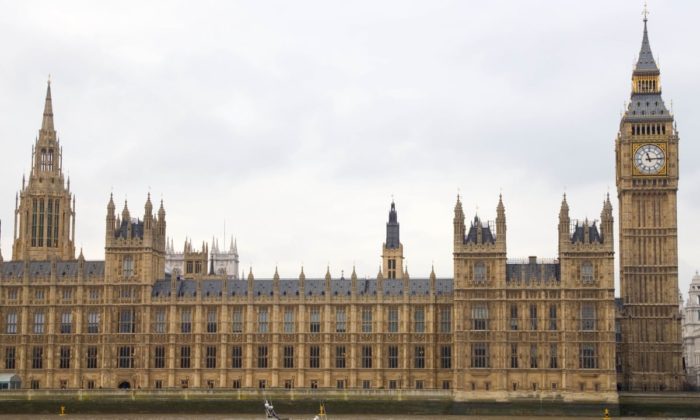Ethnographers engaging with parliaments to deepen democracies globally

A professor of Social Anthropology at SOAS University of London, and Director, Global Research Network on Parliaments and People (GRNPP), Emma Crewe, writes about the ethnography of parliament and the need for diversity of scholars researching parliaments across the world.
Democracy depends on scrutiny, both forensic investigation but also detached truth-telling about the bigger picture of politics. Within parliaments, government is scrutinised by the opposition parties, select committees, and civil society, while all politicians are watched and reported on by a free media. In practice, scrutiny is weak in shallow democracies. Less noticeably, scholars have a democratic role to play in uncovering what is going on in parliaments and might contribute to a deepening of democracy. The ones with a particular capacity to combine the close-up with distant scrutiny are ethnographers.
Ethnographers in parliamentary studies are rare in part due to difficulties of access but perhaps also many fear developing excessive empathy for the elites they are usually critiquing. The first that I know of were by Fenno on US politicians in their constituencies (1978) and the anthropologist Jack McIver Weatherford on their development of patron-client relations in the US Congress (1985). But recently the community of parliamentary ethnographers has been growing in numbers and influence. The once rather frosty reception I received from political scientists when I began studying Westminster in the late 1990s has turned into curiosity and even warmth. The Political Studies Association just invited me to join two political scientists (Michelle Taylor-Robinson and Martin Shane) in writing an article surveying the past, present and future of Parliamentary Studies.
Anthropological ethnographers are on the increase: I found examples of anthropological scholarship on parliaments from 34 countries across the world since then (collected in the Anthropology of Parliaments, 2021). But other disciplines are joining with ethnographic approaches too: linguists, oral historians, psychologists, architects, and management scholars. What they do when researching goes far beyond supplementing survey work, interviews or counting with a dose of observation. In terms of activity they delve into history, shadow, track, follow leads, do oral history and walking interviews and where possible even participate in politics, reflexively studying their own engagement to strive towards impartiality. I tackle accusations that this makes them biased elsewhere. But here I want to make an argument about why this is useful for the study of democratic engagement.
Ethnographers are by definition looking at how elements of a community or institution relate to each other – the people, the ideas, the rules, symbols, norms or whatever – and how this might help us understand both the whole and individual differences. Since relationships are at the heart of engagement and can only be fathomed by studying what happens between people in everyday encounters, ethnography is methodologically powerful for those inquiring into political participation. You can study the experience of women MPs by interviewing them. But to inquire into the shape of gendered hierarchies between MPs and those they engage with, then you need to employ a far more extensive bricolage of methodological tools adapted to context. And ethnography is not just about the tools you use. Shirin Rai’s and Carole Spary's 2019 in-depth study of women MPs in India involved interviewing and observation but is ethnographic due to its commitment to multi-disciplinarity but above all in their attention to the everyday. They get close to how politics has changed for women over a decade, who they meet and where, and how they perform in meetings or debates on a daily basis, but they also get enough detachment to see the patterns and make conclusions about what constitutes political work. This involved detachment in research is precisely what makes a good ethnographer.
Involvement detachment in research means endlessly thinking about when to get close to your interlocutors and when to create some distance. To get your head around why elections are so intoxicating, there is nothing to beat getting involved yourself. When trying to understand why MPs rebel against their own side, you must go and find some rebels, some obedient members, and some whips to gossip with so that you get a rich picture – or thick description as Clifford Geertz referred to it – from a plurality of perspectives. But once you have heard enough conflicting opinions, then you need to detach and look at the patterns, refer back to the statistics on voting patterns, and form an argument about what is going on.
For parliamentary studies to provide adequate scrutiny of politics in a given place, you need a plurality of disciplines, different methodological approaches and diversity among researchers (in terms of gender, race, class, disability etc). In the UK we remain disproportionately represented by certain social groups. But if you look at the global community of parliamentary researchers, you find even more pronounced inequalities. White Australian, Canadian, European and US political scientists dominate as authors in peer-reviewed parliamentary journals. The scholars in Africa, Asia, Middle East and Latin America who study their parliaments and their wider political worlds, have limited access to international journals and funding for research. In the Global Research Network on Parliaments and People we have been trying to improve access for parliamentary scholars in Myanmar and Ethiopia, but this is just a tiny gesture on the global stage. Decolonising the global community of parliamentary scholars might deepen democracies given that they benefit from the scrutiny of diverse academics. Just as representation in parliament matters, we need better representation by race, nationality and ethnicity in our global thought collective.
Emma Crewe tweets at @_emma_crewe
